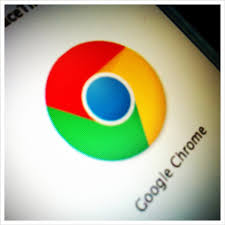 This week, Google announced that it will be joining other well-known browsers, like Safari and FireFox, in the banning of third-party cookies in Chrome. This will be a big change, yes for Google, but even more so for businesses utilizing digital advertising. The change will not take place overnight. Google stated that their intention is to make this change within two years, eliminating third-party cookies by 2022. Advertisers, agencies and marketing companies have time to come up with a new game plan.
This week, Google announced that it will be joining other well-known browsers, like Safari and FireFox, in the banning of third-party cookies in Chrome. This will be a big change, yes for Google, but even more so for businesses utilizing digital advertising. The change will not take place overnight. Google stated that their intention is to make this change within two years, eliminating third-party cookies by 2022. Advertisers, agencies and marketing companies have time to come up with a new game plan.
So, what does this mean and what are cookies anyway? Let’s take a step back and simplify things.
Cookies are small text files that are placed on your browser by websites that you visit. A cookie is considered to be third-party if it is placed by a site other than the one you are visiting. Cookies allow a business or advertiser to track your web activity. This allows them to serve you targeted ads based on your online behavior and then track the effectiveness. Many times, a website will have cookies by multiple ad companies placed on it.
Google says the objective behind the decision to eliminate third-party cookies “is to make the web more private and secure for users”. Although there will no longer be third-party cookies tracking your online usage, there will still be first-party cookies. Google, with its breadth of channels (Search engine, YouTube, Gmail, Maps, Android, Google Home) may be even more valuable by the amount of first-party data it can continue to capture. It is hard not to interact with Google in some way throughout your everyday online usage, and so it will continue to benefit from that as it collects more data. However, Google is also in the ad business and has many publisher and agency partners (us being one of them) that creates a revenue stream for Google. Google has already mentioned looking at ways around the elimination of third-party cookies, while still respecting the privacy of users. Example, Google could choose to give people more options to opt-in rather than just being served ads as a default setting.
Personally, I don’t mind being tracked by cookies and I like seeing ads that are relevant to my interests and behaviors. By not being able to personalize the ad experience, people will see generalized messages that they may not care to see, because ads will still be served. This could negatively impact the effectiveness of digital advertising for businesses, because their messages may then reach people who are not interested in their products and services.
It will be interesting to see how the industry responds, what new targeting capabilities are developed, and how technology continues to evolve as we move toward this over the next two years.



